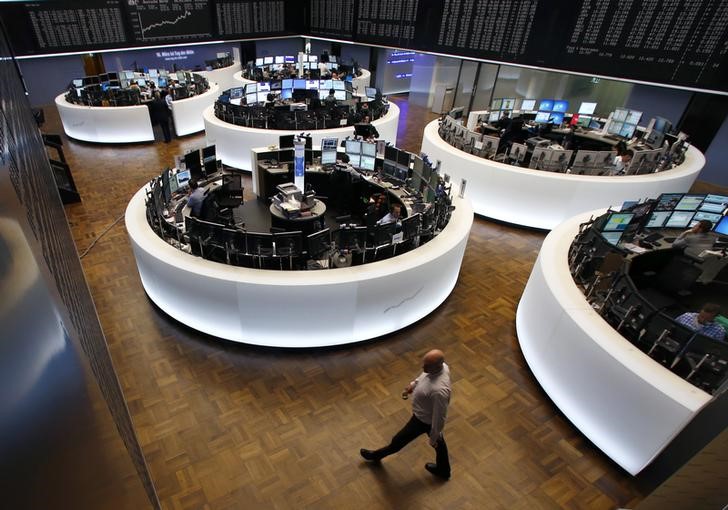By Nigel Stephenson
LONDON (Reuters) - Crude prices rose as much as 6 percent on Thursday after Saudi Arabia and its allies launched air strikes on Yemen, pushing shares lower in Europe, the Middle East and Asia and lifting oil producers' currencies.
The military operations, including air strikes, targeted Iran-backed Houthi rebels besieging the southern Yemen city of Aden. Arab producers ship oil via the Gulf of Aden and Suez Canal to Europe.
The escalating tensions in the Middle East pushed the price of Brent crude up more than $3 a barrel to close to $60, a 2 1/2-week high. It last traded at $59.17, up 4.7 percent
"Oil is having a nice move after more geopolitical tensions in the Middle East over Yemen. Saudi has intervened via a military operation but, to be clear, (it) has at the moment led to no disruptions in oil supply," said Atif Latif, director of trading at Guardian Stockbrokers in London.
A vertiginous slide in oil prices, from more than $115 a barrel last June to a low of $45 in January, has been a major driver of financial markets in the past year and a key factor driving monetary policy.
The fall has cut living costs for consumers across the globe but has triggered fears of growth-sapping deflation. More than two dozen central banks have eased policy, driving yields on many low-risk bonds into negative territory.
European shares followed Asian stocks lower. The pan-European FTSEurofirst 300 index (FTEU3) fell almost 1.5 percent. In Germany, a major industrial economy heavily dependent on oil imports, the DAX index (GDAXI) fell 1.8 percent.
However, the STOXX Europe 600 oil and gas index (SXEP) was up 0.8 percent.
Middle East stocks markets fell sharply. Dubai's DFM index (DFMGI) dropped more than 3 percent. The main Saudi index (TASI) was down 0.55 percent.
Asian shares fell. MSCI's broadest index of Asia-Pacific shares outside Japan (MIAPJ0000PUS) eased 0.8 percent, Australia's main index (AXJO) shed 1.4 percent, while Japan's Nikkei (N225) lost 1.6 percent in its biggest daily decline since mid-January.
The dollar fell. It lost 0.8 percent against Japan's yen, which stood at 118.51 to the dollar
The euro was up 0.6 percent
The dollar index (DXY), which measures the greenback against a basket of its peers, dropped 0.8 percent.
The currency has risen steadily in recent months on the prospect of a first U.S. interest rate rise since 2006 but its ascent has lost steam since the Federal Reserve last week made clear it was in no hurry to tighten policy and after weak data.
"We have been talking about it being the beginning of the end and that's still the way I would characterize it," said Daragh Maher, currency strategist with HSBC (LONDON:HSBA) in London. "What it will have done, I think, is raised some doubts in people's minds that the bull run is not without end."
Oil's rise was a fillip for the rouble, which gained 1.4 percent to 62.14 to the dollar
Yields on German government bonds, the benchmark for euro zone borrowing costs, nudged lower, though the prospect of more expensive oil sparking inflation limited falls. Ten-year Bunds
"The impact of Saudi Arabia's air strikes in Yemen is complex," said Mizuho strategist Peter Chatwell.
"It's geopolitical risk, so Bund bullish, but the rise in the oil price should push expectations of headline inflation higher over the coming months."

Gold rose more than 1 percent to $1,211.20 an ounce, supported by the weak dollar and Middle East tensions.